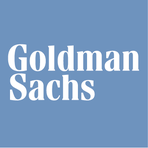U.S. Firms in Europe Brace for Turbulent Times Ahead of Trump's Presidency
January 21, 2025, 9:41 am

Location: United States, California, Cupertino
Employees: 10001+
Founded date: 1976
Total raised: $100M
As the sun rises on a new chapter in U.S. politics, American companies in Europe find themselves staring into a storm. The arrival of President Donald Trump has cast a long shadow over transatlantic relations. A recent survey reveals that nine out of ten U.S. firms operating in Europe expect economic ties to deteriorate. The fear is palpable. Tariffs and trade policies are the dark clouds looming on the horizon.
The American Chamber of Commerce to the European Union (AmCham EU) conducted this survey. It included over 160 members, from tech giants like Apple and Meta to financial powerhouses like Goldman Sachs and Visa. The results are telling. Two-thirds of respondents believe U.S. policies will negatively impact their operations in Europe. This is not just a minor hiccup; it’s a potential earthquake.
The survey, conducted between January 6 and 14, shows that 84% of these companies see tariffs and trade policy as top priorities for cooperation between the U.S. and Europe. Supply-chain resilience and energy transition follow closely behind. The message is clear: businesses want stability. They crave a partnership that fosters growth, not one that breeds uncertainty.
The fear extends beyond U.S. policies. More than half of the surveyed firms anticipate a negative impact from European Union regulations as well. It’s a double-edged sword. On one side, U.S. policies threaten to disrupt operations. On the other, EU regulations add another layer of complexity. Companies are caught in a tug-of-war, and they are not sure which way to turn.
The stakes are high. Europe is not just a market; it’s a lifeline for many U.S. firms. A vast majority of companies in the survey emphasized the critical nature of their European operations. They are calling for a united front—an alliance between the U.S. and EU to reduce regulations, lower trade barriers, and enhance regulatory cooperation. This is a plea for collaboration in a time of division.
Interestingly, three-quarters of the surveyed companies express strong support for the Paris climate agreement. This is a stark contrast to Trump’s expected withdrawal from the accord. Only 2% of respondents are against it. This disconnect highlights a growing rift between corporate America and the political landscape. Businesses are ready to embrace sustainability, while the political winds seem to be blowing in the opposite direction.
The implications of these findings are profound. U.S. firms in Europe are not just worried about their bottom line; they are concerned about the future. They see a landscape filled with obstacles. Tariffs could raise costs, disrupt supply chains, and ultimately lead to job losses. The uncertainty surrounding trade policies can stifle innovation and deter investment.
As Trump prepares to take office, the clock is ticking. Companies are strategizing, bracing for impact. They are looking for ways to navigate this turbulent sea. Some may consider diversifying their operations. Others might seek to strengthen their ties with European partners. The goal is clear: survive and thrive in an unpredictable environment.
The sentiment among U.S. firms is not entirely bleak. There is a flicker of hope. Many believe that collaboration between the U.S. and EU can lead to a more favorable business climate. They envision a future where trade barriers are lowered, and regulatory hurdles are minimized. This vision requires a shift in mindset—a willingness to work together for mutual benefit.
However, achieving this vision will not be easy. The political landscape is fraught with challenges. Nationalism is on the rise, and protectionist policies are gaining traction. The path forward is littered with potential pitfalls. Companies must remain agile, ready to adapt to changing circumstances.
In the meantime, the uncertainty continues to loom. U.S. firms in Europe are left to ponder their next moves. They are navigating a complex web of regulations and policies, trying to find a way through the fog. The stakes are high, and the pressure is mounting.
As the inauguration day approaches, the world watches closely. The decisions made in the coming weeks will shape the future of transatlantic relations. U.S. firms in Europe are holding their breath, hoping for a favorable outcome. They are ready to weather the storm, but they need a lifeline. The call for cooperation is louder than ever. Will it be heard? Only time will tell.
The American Chamber of Commerce to the European Union (AmCham EU) conducted this survey. It included over 160 members, from tech giants like Apple and Meta to financial powerhouses like Goldman Sachs and Visa. The results are telling. Two-thirds of respondents believe U.S. policies will negatively impact their operations in Europe. This is not just a minor hiccup; it’s a potential earthquake.
The survey, conducted between January 6 and 14, shows that 84% of these companies see tariffs and trade policy as top priorities for cooperation between the U.S. and Europe. Supply-chain resilience and energy transition follow closely behind. The message is clear: businesses want stability. They crave a partnership that fosters growth, not one that breeds uncertainty.
The fear extends beyond U.S. policies. More than half of the surveyed firms anticipate a negative impact from European Union regulations as well. It’s a double-edged sword. On one side, U.S. policies threaten to disrupt operations. On the other, EU regulations add another layer of complexity. Companies are caught in a tug-of-war, and they are not sure which way to turn.
The stakes are high. Europe is not just a market; it’s a lifeline for many U.S. firms. A vast majority of companies in the survey emphasized the critical nature of their European operations. They are calling for a united front—an alliance between the U.S. and EU to reduce regulations, lower trade barriers, and enhance regulatory cooperation. This is a plea for collaboration in a time of division.
Interestingly, three-quarters of the surveyed companies express strong support for the Paris climate agreement. This is a stark contrast to Trump’s expected withdrawal from the accord. Only 2% of respondents are against it. This disconnect highlights a growing rift between corporate America and the political landscape. Businesses are ready to embrace sustainability, while the political winds seem to be blowing in the opposite direction.
The implications of these findings are profound. U.S. firms in Europe are not just worried about their bottom line; they are concerned about the future. They see a landscape filled with obstacles. Tariffs could raise costs, disrupt supply chains, and ultimately lead to job losses. The uncertainty surrounding trade policies can stifle innovation and deter investment.
As Trump prepares to take office, the clock is ticking. Companies are strategizing, bracing for impact. They are looking for ways to navigate this turbulent sea. Some may consider diversifying their operations. Others might seek to strengthen their ties with European partners. The goal is clear: survive and thrive in an unpredictable environment.
The sentiment among U.S. firms is not entirely bleak. There is a flicker of hope. Many believe that collaboration between the U.S. and EU can lead to a more favorable business climate. They envision a future where trade barriers are lowered, and regulatory hurdles are minimized. This vision requires a shift in mindset—a willingness to work together for mutual benefit.
However, achieving this vision will not be easy. The political landscape is fraught with challenges. Nationalism is on the rise, and protectionist policies are gaining traction. The path forward is littered with potential pitfalls. Companies must remain agile, ready to adapt to changing circumstances.
In the meantime, the uncertainty continues to loom. U.S. firms in Europe are left to ponder their next moves. They are navigating a complex web of regulations and policies, trying to find a way through the fog. The stakes are high, and the pressure is mounting.
As the inauguration day approaches, the world watches closely. The decisions made in the coming weeks will shape the future of transatlantic relations. U.S. firms in Europe are holding their breath, hoping for a favorable outcome. They are ready to weather the storm, but they need a lifeline. The call for cooperation is louder than ever. Will it be heard? Only time will tell.

